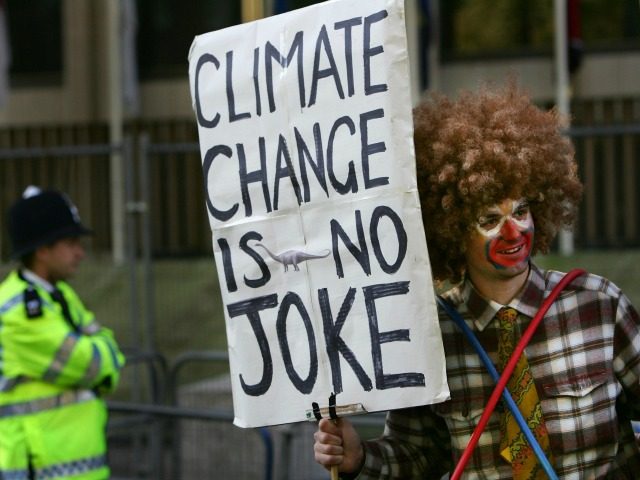A recent article in the Scientific American titled “Climate Change May Have Helped Spark Iran’s Protests” suggests climate – not Iran’s active export of terrorism and neglect of its civilian population – is responsible for the second consecutive week of protests in the Islamic Republic.
“The impacts of climate change are among the environmental challenges facing Iran that helped spark protests in dozens of cities across the Islamic republic,” the publication wrote.
At least 22 people have died during the protests, which began on December 28. One young man, 23-year-old Sina Ghanbari, reportedly died while in custody at Iran’s notorious Evin Prison.
Protesters have cited inflation, the regime’s egregious human rights record, and its decision to allocate valuable resources to exporting terrorism and fighting unnecessary wars in Syria, Iraq, and Libya, instead of focusing on their population at home as the reasons for their uprising.
The Scientific American argues instead that the protesters are reacting to “a severe drought, mismanaged water resources and dust storms.”
“While the protests are largely driven by resistance to the country’s hardline conservative government, such environmental factors might have contributed to the largest protests inside Iran in years,” the publication argues.
Islamist Iranian clerics have made similar arguments of a correlation between Iran’s political climate and the earth’s. In 2016, one such cleric claimed that “immorality” among young Iranian women, stemming from dressing “improperly,” was resulting in climate change and causing Iran’s rivers and dams to run dry.
Similarly, in 2010, another senior Iranian cleric said women who wear revealing clothing and behave promiscuously are to be blamed for earthquakes. “Many women who do not dress modestly … lead young men astray, corrupt their chastity and spread adultery in society, which increases earthquakes,” Hojatoleslam Kazem Sedighi said.
Former United States presidential candidate Sen. Bernie Sanders (I-VT) has also claimed, “Climate change is directly related to the growth of terrorism.” England’s Prince Charles once stated his belief that global warming is “one of the major reasons for this horror in Syria.”
The Scientific American quoted the Atlantic Council’s Barbara Slavin – who has served as a moderator for the National Iranian American Council (NIAC) – who said, “Iran has had a drought for 14 years, and many of these people who come into these provincial cities and towns are there because they could not function as farmers anymore; there was no water for their farms.”
Nik Kowsar, a writer, cartoonist, and geologist who understands Iran’s water system, explained to Breitbart News that nearly ten percent of the waters in Iran’s dam reservoir “are being evaporated due to the warm climate in Iran and its been getting warmer in the last decade or so.”
He attributed this to an increase in the population and less population control over Iran’s new policies in regard to that.
In 2015, Slavin said:
Rouhani remains the most popular political figure in Iran but less admired than he was a year ago, according to the recent IranPoll.com survey. More ominously, his controversial predecessor Mahmoud Ahmadinejad – who is planning to challenge Rouhani in presidential elections next year — is seeing a rise in popular support.
Iran’s Guardian Council hand-picks and approves candidates for president in Iran. President Donald Trump’s presidency has arguably dismantled the myth that there is a distinction between hardliners and “moderates” in Iran.
Political analyst Omri Ceren, who serves as an adviser to The Israel Project, noted during a panel discussion on Tuesday that “something that the Trump administration has been saying for months – was validated,” explaining “that it is all one big regime with reformists and conservative pragmatists and conservatives and hardliners all on the same team.” Ceren went on to say, “Those are two things that used to be a debate but are no longer a debate because we saw reformists come out against the protesters on behalf of the supreme leader.”
“There are hardliners and there are hard, hard-liners,” Ceren said.

COMMENTS
Please let us know if you're having issues with commenting.